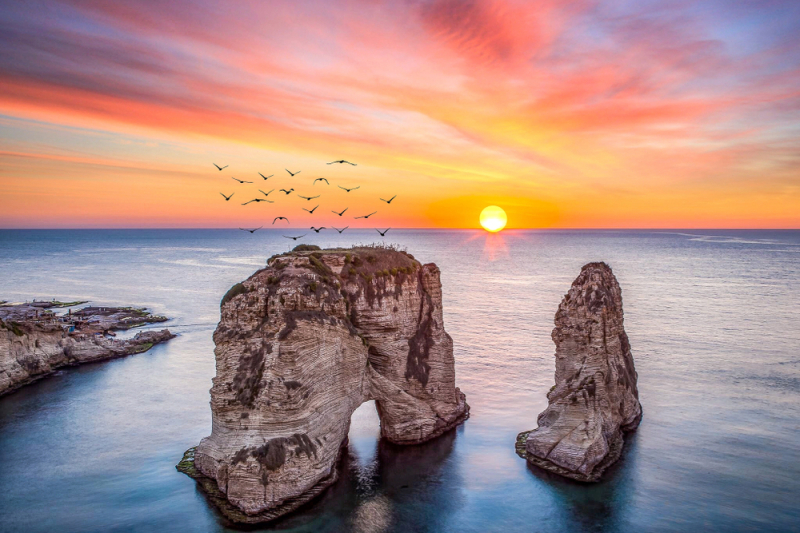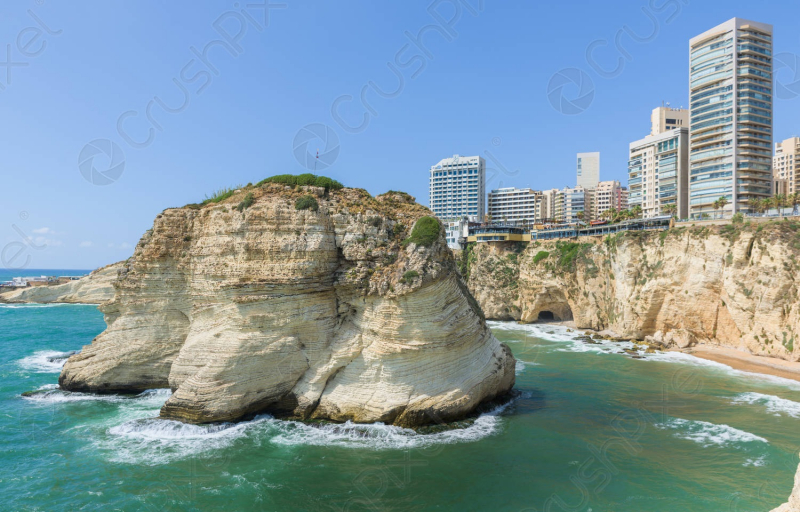Raouchè Pigeon Rocks
In Lebanon, the Raouchè Pigeon Rocks are one of the country's natural wonders. The Raouchè Pigeon Rocks are a magnificent group of rocks that greet visitors as they arrive in Lebanon's capital city. While strolling along the corniche, visitors to the rocks can admire the sea and the rocks. At the Raouchè Pigeon Rocks, visitors will be treated to a beautiful sunset. Raouché is also said to be the bones of a sea monster that Perseus, the Greek hero, slaughtered in order to save Andromeda. Perseus put Medusa's head on the monster to convert it into stone, hence the stone is rock.
According to some historians, the word "raouché" comes from the Aramaic word rosh or the Arabic word ras, both of which mean "head." Others claim that it is a misspelling of the French word roche (rocher), which means rock. The AUB Archaeological Museum has flints and rudimentary stone tools found on the coasts near Raouché, which represent the area's oldest evidence of human presence.
Location: Raouche, Beirut, Lebanon
Opening Hours: Daily
Entrance fee: free










